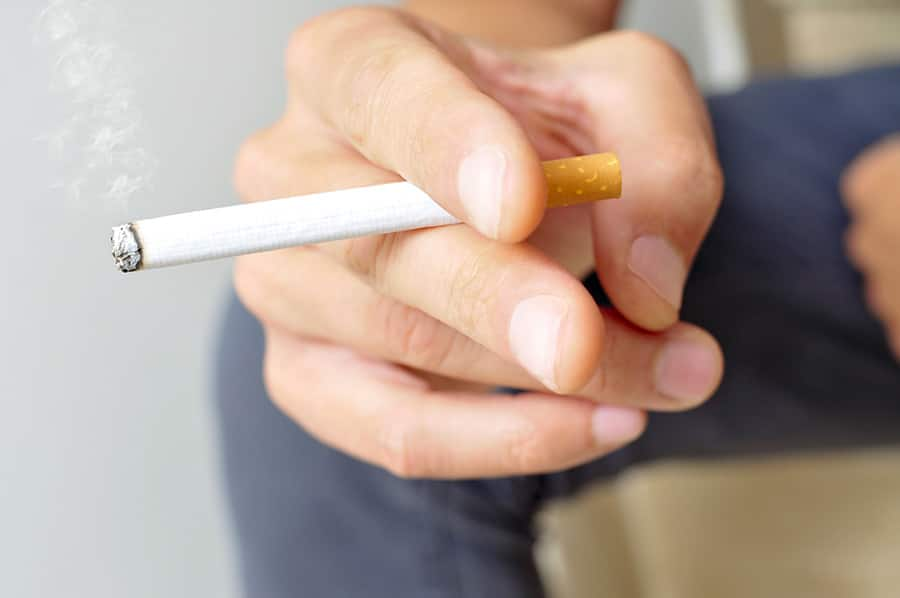Impacted Wisdom Teeth and Extraction
To understand why dental professionals use coronectomies in some cases, first, we have to understand the standard treatment for impacted wisdom teeth: tooth extraction.
When your wisdom teeth start to come in, often there is not enough space in your mouth to accommodate them. When your tooth doesn’t have enough space to erupt properly, this is referred to as the tooth being impacted.
If left untreated, an impacted tooth may lead to:
- Pain
- Swelling
- Infection
- Cysts
For this reason, your dental professional will recommend treatment to avoid your impacted wisdom teeth causing other oral health concerns. The standard first choice of treatment is a simple extraction of the affected teeth. However, this procedure may not be a good fit for your individual needs. Some people’s wisdom teeth are located too close to nearby (lingual and inferior alveolar) nerves to be extracted safely, making long-term nerve damage a risk.
Nerve damage from a wisdom tooth extraction may cause:
- Pain
- Difficulty eating and chewing
- Speech problems
- Loss of sensation or taste
Helpful tip: If your wisdom teeth are impacted but do not cause pain or infection, your dental professional may recommend no treatment instead of extraction or coronectomy.
The Coronectomy Procedure
A coronectomy mitigates the risk of nerve damage by removing only the top (also known as the crown) of your wisdom teeth and leaving their roots in place. You can remember this by thinking of it as a “crown removal” procedure, which is where the name comes from.
Coronectomies typically take less than an hour. First, your dental professional will use a local anesthetic, general anesthetic, or sedation to ensure that you’re comfortable throughout the procedure. They will then cut into your gum, drill away the crown of your tooth and surrounding bone, remove any infected tissue, smooth the remaining root, and stitch your gums back up.
Even though coronectomies reduce the risk of nerve damage, they do not eliminate it. There are still risks associated with procedures affecting your wisdom teeth.
Risks of undergoing a coronectomy may include:
- Pain, swelling, and bleeding
- Need for further treatment
- Nerve damage
- Dry socket
- Infection
Rest assured that professionals are specially trained to diagnose impacted wisdom teeth and perform the appropriate treatment while minimizing risk. Your regular dental professional may refer you to a specialized dental professional like an oral or maxillofacial surgeon to perform the procedure.
Who's a Good Candidate?
It’s difficult to determine if your wisdom teeth are impacted or if you need an extraction or coronectomy on your own. While we all share anatomy in common, there is a large amount of variability between individuals in the exact location of your teeth and surrounding nerves.
Your dental professional will perform an oral exam and use radiographic imaging to gain more insight into the anatomical structure of your mouth, such as an X-ray or CT scan. This will guide their decision to determine if you need treatment and if extraction or coronectomy is more appropriate.
Knowledge is power, so you’ve made an excellent decision to inform yourself on the ins and outs of the coronectomies. You now understand this procedure is used to limit the risk of nerve damage when you have impacted wisdom teeth, what it entails, and who is a good candidate.
Oral Care Center articles are reviewed by an oral health medical professional. This information is for educational purposes only. This content is not intended to be a substitute for professional medical advice, diagnosis or treatment. Always seek the advice of your dentist, physician or other qualified healthcare provider.
ORAL HEALTH QUIZ
What's behind your smile?
Take our Oral Health assessment to get the most from your oral care routine
ORAL HEALTH QUIZ
What's behind your smile?
Take our Oral Health assessment to get the most from your oral care routine















